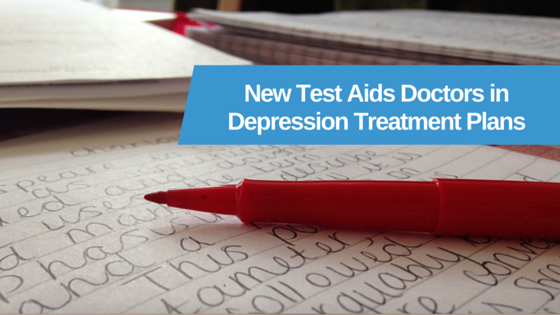When diagnosed with depression, talk therapy is the first recommended form of treatment. If symptoms are severe and present even after a few months of therapy, medication is then added to the treatment plan. Taking an antidepressant is a lot like filling your car with motor oil – you hope that some of the oil makes it into the right place and does its job. Doctors take all of the information possible to give you what they think will work best, but it can still take about 6 weeks for the average medication to start working. If symptoms are persistent after a few months, or you experience side effects such as nausea, an increased appetite or weight gain, fatigue or blurred vision, it may lead your doctor to change your prescription.
When prescribing medication, a doctor’s hopes is for a high response rate from the patient. A high response rate means that the medication is being properly digested, symptoms are reduced, and there are no major side effects. Since teen depression varies and may look different in people, there is not one single antidepressant that will work for everybody. Treatment is tailored to the patient, and medications are prescribed based on the individual’s symptoms. If you know somebody who has struggled with depression, or have struggled with the disease yourself, you probably know that trying medication requires patience. The first medication you try may not be the one you continue with. Though one antidepressant may work wonders for your best friend, it does not mean that your body will respond similarly. The trial-and-error process of prescribing an antidepressant may be about to become much simpler with a test, called a genomic scan, which doctors have created to test a patient’s genes, giving the physician a better idea of how certain antidepressants will be metabolized by the individual.
The effect that our DNA has on drugs can determine whether or not a medication such as an antidepressant will work to its fullest capacity. How our bodies react to medicine can be inherited biologically, and our genes determine how our bodies digest and respond to medication. By using DNA extraction and genomic scans, which show an individual’s genomic makeup, doctors can get a better idea of which antidepressants will be managed better for a patient, and which medications to avoid, reducing guesswork and saving time for both doctor and patient.
This genomic scan produces a report that resembles a stop light. Medications listed under the red category should be used with increased caution and more frequent monitoring. Medications under the yellow category should also be used with caution, but may not require as much monitoring. Medications listed under green can be used as directed by your doctor.
The genomic testing does not completely eliminate the trial and error process of prescribing antidepressants, but it gives the doctor a much better idea of which can be managed, or will not be managed, by the particular patient. If you have experienced complications with your antidepressant, or are in the process of beginning a prescription, consider these questions to ask your doctor from our Parent Handbook on Childhood and Adolescent Depression:
 How do you know when the medication is working?
How do you know when the medication is working?- What are the side effects of the medication? What should I do if they occur?
- What kind of tests are run to make sure the medication is safe for me?
- Which symptoms will the medication alleviate? How long before I will see positive results?
- What are potential interactions with other medications, over-the-counter products, tobacco, alcohol, and drugs?
We understand the patience it requires when starting treatment for teen depression, and staying hopeful will help ease the process. Learning more about treatment will also benefit, so you’ve got the “green light” from us to check out the Teen Depression Toolbox on our website for more on teen depression.



